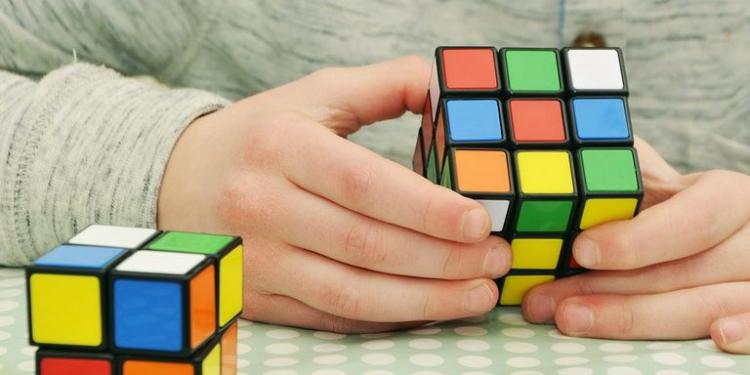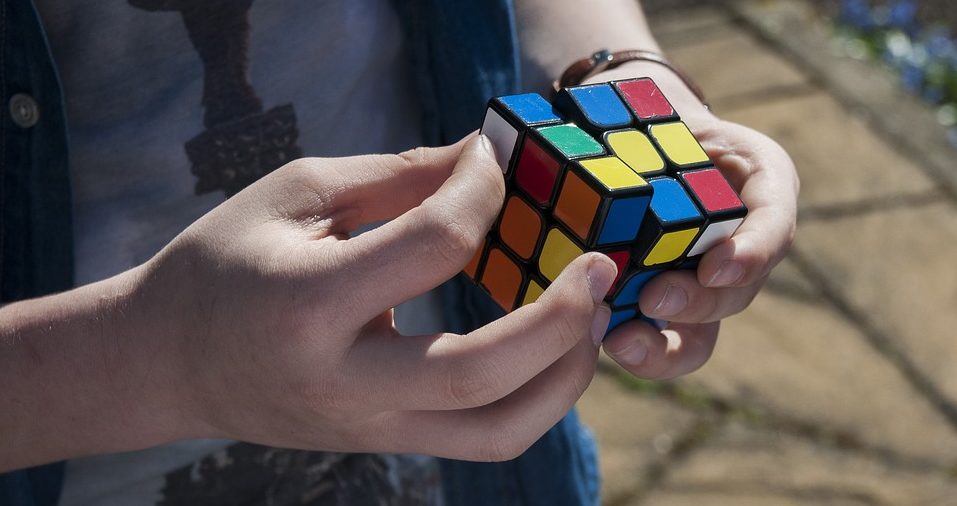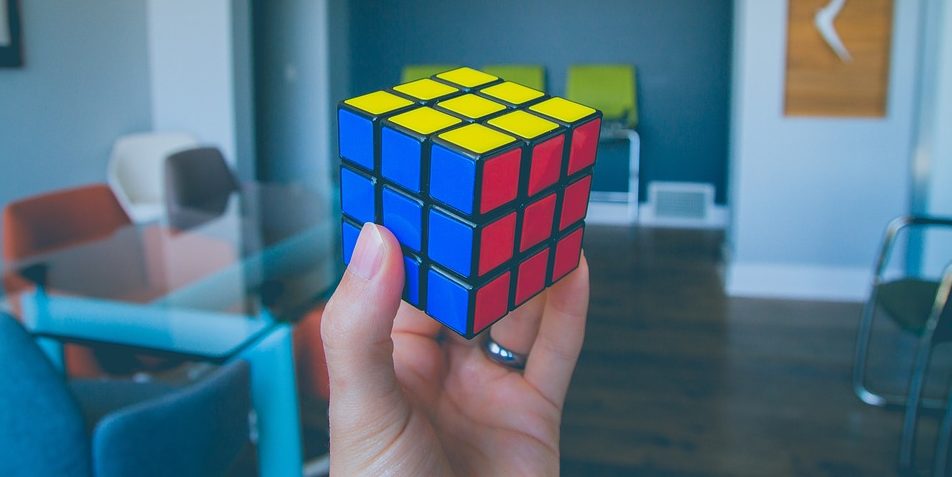The Time to Solve a Rubik’s Cube with Random Moves
Posted: December 31, 2019
Updated: December 31, 2019
-
Rubik’s Cube gonna take some time
-
Even best case scenario, not in your lifetime
-
Just be patient

Can you solve a Rubik’s Cube with Random Moves? It could take awhile. There are so many variables, that we need to first set some parameters. Between being extremely lucky and solving it quickly, to working on it forever. A perfectly random scrambled Rubik’s cube has 43,252,003,274,489,856,000 (quintillion) possible positions. And they all have an equal probability.
Solve a Rubik’s Cube with Random Moves
So, time wise it’s gonna take that number times how long it takes you to make a move. It doesn’t matter if you count a half turn as either one move or two, and the same goes for slice moves. This is because if you make a random move on a perfectly random scrambled cube, all positions have an equal possibility. Not like betting with Party Poker, where the odds can be moved into your favor.

Random means Random
Remember that your moves are equally random. So, all 43 252 003 274 489 856 000 possible positions have an equal probability. Now you make a random move. The result of your move will still leave all the positions with the same equal probability. Essentially, you are simply repeatedly re-scrambling the cube and checking whether it’s solved. We all know from online gambling news that if there is a 1n probability of success then the 1st success will be on average at the nth trial. As the 1st trial is the initial scrambled state, so the expected number of moves would be n-1, as opposed to n.
Little Fleas have Smaller Fleas
But that can’t be right? Maybe you’re just 1 position away from solving it. But the point is, even when you’re so very close, your next move is still a random one. In other words you could undo all your previous good work. Of course, if you continuously make random moves you will eventually solve the puzzle. In terms of probability it’s an event that will (almost surely) happen. Like rolling a dice continuously or ad infinitum, you’re bound to get a six at some point.

Cryogenics Might Help
But could you complete such a feat with your life time? Short answer is nope. If you took one second to make one random turn, then it would take 1.371 × 1012 years. Yeah, yeah, you could be lucky. But I don’t think so. Let’s say the beginning of the Universe was when you started your Rubik’s cube random journey. For arguments sake, let’s call that 13.8 billion years ago. You can take one move per second. So, at any point, your chances of solving the cube are 1−(1−143252003274489856000)t, where t=13798000000 × 365 × 24 × 3600. This is approximately 1% that you would solve it by now. If we allow you 20 moves each second, then your time increases to 18% of completing it. Just stick with Party Poker! At least the payout is within your lifetime!
Live Long and Prosper
How about if you were able to NOT repeat a move? So you, as a learned mathematician, receive a scrambled cube at the beginning of time. You can plot a Hamilton graph of all possible positions, meaning that you will not repeat even one. Now, according to online gambling news in the UK, your chances of solving it have increased to 20%. Your chances are 13798000000 × 365 × 24× 360043252003274489856000. So yes, there’s a good possibility that over the course of 70 billion years, you’ll solve it. The same cannot be said if your moves are completely random. So, to solve a Rubik’s Cube with random moves, needs a huge number of full time people.












